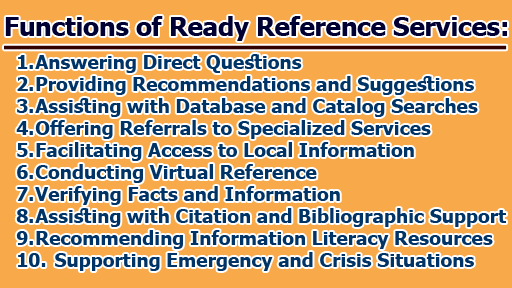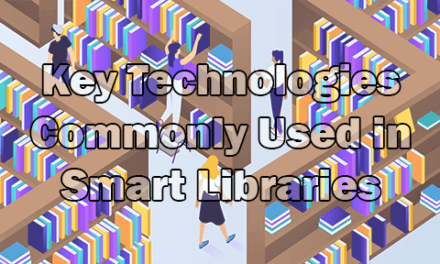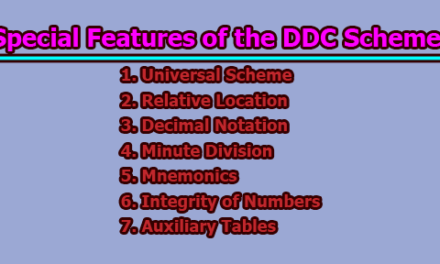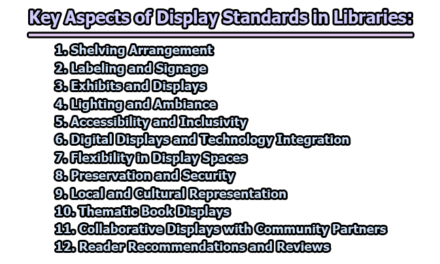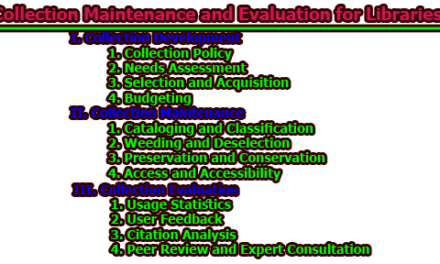Ready Reference Service:
In today’s information-driven world, quick and reliable access to accurate information is essential for individuals across different domains. Ready reference services have emerged as valuable resources to meet this demand, offering timely assistance and efficient information retrieval. These services, also known as immediate or quick reference services, cater to specific and direct queries, helping users find answers, resources, and recommendations promptly. With the evolution of technology and the vastness of the internet, ready reference services play a vital role in navigating the digital landscape, guiding users toward credible resources, and aiding in information vetting. This article aims to explore the concept of ready reference services comprehensively, delving into their definitions, importance, queries, and functions of ready reference services.
Definitions of Ready Reference Services:
Perspective 1: The Librarian’s View:
Ready reference service, from a librarian’s perspective, is a pivotal aspect of information provision within a library setting. It is the frontline service that connects users with timely and accurate information in a quick and efficient manner. As librarians, our primary objective is to assist patrons with their immediate and specific information needs, guiding them toward relevant resources, answering direct questions, and offering tailored recommendations. Ready reference services empower users to navigate the vast sea of information, curate credible sources, and make informed decisions. It requires a keen understanding of available resources, database search techniques, and the ability to assess the reliability and relevance of information. Ultimately, the fulfillment we derive from witnessing patrons’ satisfaction and their increased information literacy makes ready reference service an invaluable and rewarding aspect of our profession.
Perspective 2: The User’s Experience:
As a user seeking information, a ready reference service represents a lifeline amidst the overwhelming sea of information available. It is a beacon of hope when faced with urgent queries or complex research needs. The service enables me to approach the library or a piece of information professional with confidence, knowing that my questions will be addressed promptly and effectively. The librarian’s expertise and willingness to assist not only save time but also ensure that the information I receive is reliable and up-to-date. Whether I require assistance with academic research, professional inquiries, or personal curiosities, the ready reference service acts as a reassuring presence, guiding me towards trustworthy resources and helping me navigate the often-confusing world of information.
Perspective 3: The Technologist’s Insight:
In the digital era, ready reference service takes on a new dimension with technological advancements. From a technologist’s perspective, this service integrates cutting-edge tools and platforms to streamline information retrieval. It involves harnessing the power of artificial intelligence, chatbots, and data analytics to deliver personalized and context-aware responses. Ready reference services extend beyond physical libraries, reaching users through web-based portals, mobile applications, and virtual reference desks. For a technologist, the challenge lies in striking the right balance between automation and personalized human interaction, ensuring that users receive accurate information while leveraging technology to enhance service efficiency. The future of ready reference service holds exciting potential, as we explore the possibilities of seamless integration with the Internet of Things (IoT) and further advancements in artificial intelligence.
Perspective 4: The Institution’s Perspective:
From an institutional standpoint, ready reference service represents a strategic investment in customer satisfaction and information dissemination. Institutions, whether academic, public, or corporate, recognize the significance of providing seamless access to information for their patrons, clients, or employees. Ready reference service serves as a key component of their information services ecosystem, fostering a positive image of the institution as a reliable and knowledge-centric entity. Moreover, it contributes to the overall information literacy of users, enabling them to make well-informed decisions and contribute effectively to their respective domains. Institutions continuously assess and optimize their ready reference services, incorporating user feedback and technological advancements to remain responsive to evolving information needs.
From the above definitions, we can say that ready reference service holds different meanings and values for various stakeholders. For librarians, it represents a fulfilling aspect of their profession, while users rely on it for timely and accurate information. Technologists see it as an opportunity to leverage technology for service improvement, and institutions consider it an integral part of their information services strategy. Together, these perspectives converge to highlight the vital role ready reference service plays in connecting users with the information they seek, empowering them in their quest for knowledge.
Importance of Ready Reference Services:
The importance of ready reference services lies in its ability to provide quick, accurate, and reliable assistance to users seeking information. This service plays a crucial role in various contexts, such as libraries, educational institutions, corporate settings, and public domains. Here are some key reasons why ready reference services are of great significance:
a. Timely and Efficient Assistance: In today’s fast-paced world, time is a precious commodity. Ready reference service offers users immediate access to information, sparing them from the lengthy process of searching through vast databases or navigating the internet. This quick response ensures that users receive the information they need promptly, enabling them to make timely decisions and progress with their tasks.
b. Enhancing User Satisfaction: Users greatly appreciate the convenience and efficacy of ready reference services. When they receive accurate and relevant information in a short time frame, their satisfaction with the service increases. This positive experience fosters a strong relationship between users and information providers, encouraging them to return to the service for future information needs.
c. Supporting Information Literacy: Ready reference service plays a pivotal role in enhancing information literacy among users. Librarians and information professionals not only provide answers but also guide users on effective search strategies, critical evaluation of sources, and information vetting techniques. By imparting these skills, ready reference service empowers users to become more adept at finding and using information effectively.
d. Promoting Access to Diverse Resources: Ready reference service helps users access a wide range of resources beyond what they might find through casual internet searches. Librarians and information professionals possess expertise in various databases, catalogs, and specialized collections, enabling them to guide users toward valuable resources they might not have discovered on their own.
e. Reliability and Accuracy: Ready reference service ensures that the information provided is trustworthy and reliable. Librarians and information professionals undergo rigorous training in information evaluation, enabling them to filter out misleading or incorrect information. This commitment to accuracy strengthens users’ confidence in the information they receive.
f. Meeting Urgent Information Needs: There are situations where users require immediate information to address urgent queries or make time-sensitive decisions. Ready reference service acts as a lifeline in such cases, offering quick solutions and reducing potential delays or errors caused by inadequate information.
g. Personalized Assistance: Ready reference service often involves one-on-one interactions between users and information professionals. This personalized approach allows information providers to tailor responses to users’ specific needs, preferences, and levels of expertise, ensuring a more personalized and satisfactory experience.
h. Navigating Information Overload: The digital age has resulted in an overwhelming amount of information available to users. Ready reference service helps users navigate this information overload, providing them with focused and relevant responses that align with their information requirements.
i. Bridging the Digital Divide: While digital resources are abundant, not all users possess the necessary skills or technology to access them effectively. Ready reference service ensures that all users, regardless of their technological proficiency, can access valuable information and receive the necessary support to navigate the digital landscape.
Queries of Ready Reference Service for Libraries:
Ready reference service in a library setting is designed to address various queries that patrons may have while using the library’s resources and services. These queries typically involve specific and immediate information needs. Here are some common types of queries that fall within the scope of ready reference service for a library:
- Library Catalog Assistance: Patrons may seek help in navigating the library catalog to find books, e-books, journals, audiovisual materials, or other resources available in the library’s collection.
- Reference Material Recommendations: Users may ask for recommendations on reference books, encyclopedias, dictionaries, or other specialized resources for research and study purposes.
- Citation and Bibliographic Support: Patrons may need assistance with formatting citations, creating bibliographies, or using citation management tools like EndNote or Zotero.
- Research Topic Guidance: Users seeking guidance on formulating research questions, narrowing down topics, or finding scholarly sources for their research projects can benefit from ready reference assistance.
- Database Search Help: Library patrons may require guidance in conducting effective searches within databases, online repositories, and academic journals to locate relevant articles and scholarly materials.
- eBook and eResource Access: Queries related to accessing and using electronic resources, such as e-books, e-journals, and online databases, can be addressed through ready reference service.
- Local History and Genealogy: Users interested in local history, genealogy research, or historical archives may seek assistance in accessing relevant materials.
- Quick Facts and Definitions: Patrons may ask for quick facts, definitions, or explanations related to specific subjects or terms.
- Book Recommendations: Library users may request suggestions for leisure reading, book club selections, or new releases in various genres.
- Library Policies and Services: Queries related to library policies, loan periods, renewal options, and available services like interlibrary loans or computer use can be answered through a ready reference service.
- Technology and Digital Resources: Patrons seeking help with using library computers, Wi-Fi, printers, or accessing digital resources may turn to a ready reference service for assistance.
- Library Events and Programs: Users may inquire about upcoming library events, workshops, book talks, or educational programs.
- Academic Support: Students may require support in locating academic resources, using citation styles, or finding materials for assignments and papers.
- Library Hours and Locations: Inquiries about library operating hours, branch locations, or holiday closures can be addressed through the ready reference service.
- Information Literacy Instruction: Ready reference service can include information literacy instruction, where users are guided on research skills, critical evaluation of sources, and effective use of library resources.
Functions of Ready Reference Services:
Ready reference services encompass a range of functions aimed at providing quick and accurate assistance to users seeking information. These functions are designed to meet the immediate and specific information needs of users efficiently. Here are the key functions of ready reference services:
- Answering Direct Questions: At the core of ready reference services is the ability to address direct questions from users promptly. Whether it’s a specific date, a statistical figure, a historical fact, or a definition, ready reference professionals leverage their knowledge and expertise to provide accurate and concise answers. This function ensures that users receive the information they seek without delay, saving them time and effort in their quest for knowledge.
- Providing Recommendations and Suggestions: Beyond answering straightforward questions, ready reference services excel in offering tailored recommendations and suggestions. Librarians and information professionals leverage their in-depth understanding of various subjects and resources to guide users towards relevant books, articles, websites, databases, or other materials that align with their interests or research topics. These recommendations enrich users’ information-seeking experience and expose them to valuable resources they might not have discovered independently.
- Assisting with Database and Catalog Searches: Navigating vast databases or library catalogs can be daunting for many users. Ready reference services assist users in refining their search queries, identifying appropriate databases, and utilizing advanced search techniques to yield more relevant and comprehensive results. By guiding users through the search process, these services enhance users’ information retrieval skills and empower them to find valuable resources effectively.
- Offering Referrals to Specialized Services: In some cases, users may require more in-depth or specialized assistance beyond the scope of ready reference services. Ready reference professionals recognize the limits of their expertise and refer users to subject specialists, research experts, or other resources that can better address their specific needs. This function ensures that users receive comprehensive support, even when their inquiries extend beyond the immediate capabilities of ready reference services.
- Facilitating Access to Local Information: Ready reference services serve as a valuable resource for users seeking information about local events, community services, government resources, or other region-specific topics. Librarians and information professionals provide information on local happenings, contact details of local organizations, and other community-related information, helping users stay connected and engaged with their immediate surroundings.
- Conducting Virtual Reference: The advent of technology has extended ready reference services to virtual platforms. Through email, live chat, video conferencing, or other virtual communication channels, information professionals now offer assistance remotely, enabling users to access support from anywhere, at any time. Virtual reference services have further enhanced the accessibility and availability of ready reference assistance.
- Verifying Facts and Information: In an age where misinformation and fake news abound, ready reference services assume the role of reliable fact-checkers. Information professionals carefully verify facts and corroborate information from credible sources to ensure the accuracy and authenticity of the responses provided. This function fosters trust in the information provided and contributes to users’ confidence in the reliability of the service.
- Assisting with Citation and Bibliographic Support: Proper citation and bibliographic formatting are essential components of academic and research endeavors. Ready reference services assist users in correctly citing sources according to specific citation styles, such as APA, MLA, or Chicago. By offering guidance on citation rules and formatting, these services ensure academic integrity and adherence to scholarly conventions.
- Recommending Information Literacy Resources: Information professionals are strong advocates of information literacy. As part of their function, ready reference services recommend resources and tools to help users improve their research skills, critical thinking abilities, and information evaluation capabilities. Tutorials, online courses, workshops, and other educational materials are suggested to enhance users’ overall information literacy.
- Supporting Emergency and Crisis Situations: In times of emergencies or crises, ready reference services play a vital role in providing essential information and resources. Whether it’s information on disaster preparedness, health guidelines during a pandemic, or resources for assistance during emergencies, ready reference professionals step up to offer timely and critical information, aiding users in making informed decisions during challenging circumstances.
In conclusion, Ready Reference Service plays a vital role in the information landscape, providing quick and accurate assistance to users with specific inquiries. Librarians and information professionals deliver timely responses, enhancing information access, supporting research, and fostering information literacy. The service’s importance extends beyond answering questions, as it promotes trust in information, offers personalized recommendations, and helps users develop research skills. With a commitment to accuracy and credibility, Ready Reference Service serves as a reliable fact-checker in a world filled with misinformation. Additionally, it offers critical support during crises and emergencies, providing essential information and resources. Embracing digital advancements, the future of Ready Reference Service holds promising prospects for seamless access to diverse information sources and personalized assistance. As libraries and institutions invest in and expand this service, users will be empowered, well-informed, and adept at navigating the vast information landscape with confidence.
FAQs:
What is Ready Reference Service?
Ready Reference Service is a specialized information service that offers quick and accurate assistance to users seeking immediate answers to specific questions. Librarians and information professionals provide prompt responses, guiding users to relevant resources and information.
How do I access Ready Reference Service?
Ready Reference Service can be accessed through various means, including in-person at a library’s reference desk, via phone, email, or through virtual platforms like live chat or video conferencing.
What types of questions can I ask through Ready Reference Service?
You can ask a wide range of questions through Ready Reference Service, including factual inquiries, statistical data, historical events, definitions, book recommendations, database searches, and much more.
Is Ready Reference Service only available in libraries?
While Ready Reference Service is commonly associated with libraries, it can also be available in other contexts, such as educational institutions, corporate settings, government agencies, and public domains.
Is there a limit to the number of questions I can ask through Ready Reference Service?
Ready Reference Service typically addresses immediate and specific information needs. While there may not be a strict limit, it is essential to keep questions concise and relevant to ensure efficient service for all users.
How long does it take to receive a response from Ready Reference Service?
The response time for Ready Reference Service may vary based on the complexity of the question and the availability of information professionals. However, the aim is to provide prompt responses whenever possible.
Can I get assistance with research projects through Ready Reference Service?
Yes, Ready Reference Service can provide valuable assistance with research projects, including guidance on research topics, database searches, citation support, and locating relevant resources.
How can I be sure that the information provided is accurate and reliable?
Librarians and information professionals are trained to verify the accuracy and credibility of information before providing responses. They use reliable and reputable sources to ensure the information given is trustworthy.
Are there any fees associated with using Ready Reference Service?
In most cases, Ready Reference Service is a free service provided by libraries and institutions. However, there may be fees associated with specific services, such as document delivery or interlibrary loan requests.
Can I use Ready Reference Service for emergency situations?
Yes, Ready Reference Service can be valuable during emergencies or crises. Information professionals can provide essential information and resources to assist users in making informed decisions during challenging times.
Can I access Ready Reference Service outside of the library’s operating hours?
With the advancement of technology, many libraries offer virtual reference services that operate outside traditional hours, allowing users to access assistance at their convenience.
How can I provide feedback or suggestions about my experience with Ready Reference Service?
Libraries and institutions often welcome user feedback to improve their services. You can provide feedback through surveys, email, or by speaking directly with library staff.

Library Lecturer at Nurul Amin Degree College

